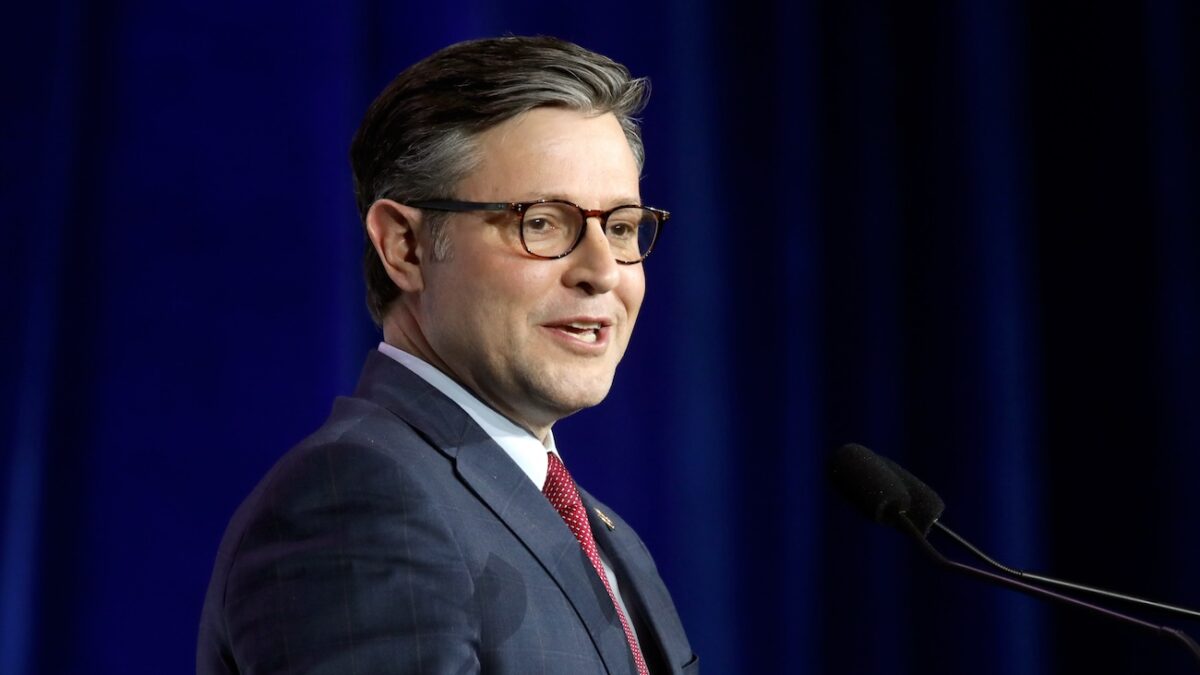
Stop in the cafe at Tipton, Kansas, on any given morning, and you’ll find a group of retired farmers huddled around a table discussing everything from grandkids to beef prices and the cold front headed in from the west. Their daily ritual is as dependable as the sun that will show itself soon.
Tipton is a town of only about 200 hardy citizens, many of whom have roots that extend back for generations — back to the days when prairie settlers stopped, built homes, and never left. It’s an isolated place with more cattle than people, but news of the world makes its way there. The elders of the cafe cover it all with the same no-nonsense manner that they used in raising kids and livestock without wasting a plate of food or a sack of grain.
On this particular morning, one of them can be heard recounting the story of how President Joe Biden responded to a dad saying, “Let’s go Brandon,” by repeating it and then enthusiastically saying he agrees. The group laughs. They know instinctively what The New York Times editors, huddled in their cocoon of self-declared truths, will never admit — Joe Biden is a few bushels shy of a load.
Not heard from these weathered gentlemen was any talk about the “Build Back Better” bill. Even as officious leaders in Congress wring their hands about the dire need to pass the bill, lest the seas rise and the storms overtake us, or, God forbid, government programs not be allowed to expand, they didn’t seem to waste their time on it.
Life in rural America has a way of distilling things down to what really matters. Trillions of dollars in new spending isn’t a priority.
Few Support Build Back Better
Politicians with an astute ear to the ground know there is no groundswell of public support for Build Back Better. It infuriates the far left when they’re confronted with that truth.
After hearing Sen. Joe Manchin say, “If I can’t go home and explain it to the people of West Virginia, I can’t vote for it. And I cannot vote to continue with this piece of legislation,” Sen. Bernie Sanders of Vermont threatened to have a poll conducted in the state to “see how the people of West Virginia feel.” Underscoring his sincerity on the matter, the socialist senator added, “By the way, I’ll pay for the d-mn poll.” Manchin remained unfazed.
Democrats have trotted out the president to create the illusion of popularity for his signature legislation. In an October speech leading up to the big push for congressional votes, Biden claimed, “This agenda — the agenda that’s in these bills — is what 81 million Americans voted for. More people voted than at any time in American history. That’s what they voted for. Their voices deserve to be heard, not denied — or, worse, ignored.”
Polls reveal the truth is different. An NPR/Marist survey found that only 41 percent of respondents supported the big-priced legislation. Although 74 percent of Democrats gave it a thumbs up, only 36 percent of independents and 13 percent of Republicans agreed. A bipartisan majority of Americans are more concerned about rising inflation taking a bite out of their family budget.
Democrats Undeterred by Public Opinion
Democrats are convinced it’s just a marketing issue. Rep. Hakeem Jeffries, who serves as chair of the House Democratic Caucus, argued to fellow members, “We’re going to have to message, persuade, and communicate in headlines.”
Perhaps the message is muddled because, in an attempt to pass the largest increase in government spending since President Lyndon B. Johnson’s “Great Society,” Democrats threw their entire wish list of goodies into one mammoth piece of legislation — at the cost of $1.75 trillion even after being cut in half. As everything, it is nothing in particular — a bill without a clear purpose.
They could have offered up individual components that they believe are broadly popular, such as an extension of the $300 child tax credit or more home health-care dollars for seniors, but they didn’t, perhaps because that would leave less popular pieces exposed to direct criticism. Americans may not be so keen on blowing $500 billion to try and change the world’s climate, and seeing that reality play out in a roll call vote might be painful to “all or nothing” leftwing members.
The most popular part of BBB is a proposed change to the Medicare statute to allow the secretary of Health and Human Services to negotiate lower prescription drug prices. Many Americans will recall that President Trump signed an executive order that required pharmaceutical companies to provide drugs at the same lower prices that they sell them abroad. Insulin and epinephrine were suddenly affordable for low-income families.
The Biden administration ended that policy, exposing the unvarnished truth about Democrats’ concern about drug prices. Still, they claim to represent working-class people — and that BBB shows it.
With full-blown exasperation setting in, some Democrat voters, such as Jennifer Merritt of New York, are pushing the party to go for broke: “I’m like, ‘Dude, you have all of the power right now. Use it while you can, you know, before we lose it again.” In that one statement lies more honesty than you’ll hear from Democrat politicians of either chamber.
They don’t expect any boost in the midterms from BBB. In fact, the opposite is likely, but they’re hell-bent on finding a way to pass it anyway in 2022. Senate Majority Leader Chuck Schumer has adamantly proclaimed, “We are not giving up on BBB. Period. We won’t stop working on it until we pass a bill.”
Plans to Ram It Through Congress
If history is a guide, they will do exactly that — and the end may justify the means. The Affordable Care Act was passed by legally questionable means after hitting a roadblock with the death of Sen. Edward Kennedy, D-Mass., whose seat was then filled by a filibuster-quashing Republican.
House Speaker Nancy Pelosi commented at the time, “You go through the gate. If the gate’s closed, you go over the fence. If the fence is too high, we’ll pole-vault in. If that doesn’t work, we’ll parachute in.” In the end, they used the reconciliation process to push through a Senate bill, never mind that the Constitution requires all revenue (tax) bills to originate in the House.
Back then, newly elected President Barack Obama had political capital to use. “What are we supposed to do, put my approval rating on the shelf and admire it for eight years?” he quipped at the time. Today, as Biden sits at an abysmal approval rating just north of 40 percent, it’s tough to find anything close to a mandate for the BBB legislative monstrosity, and the president lacks the power to change that.
Manchin reminds his party of their true political position: “You all are approaching legislation as if you had 55 or 60 senators that are Democrats and you can do whatever you want. Well, you know what, we’re all a little bit diverse. I said, I’m not a Washington Democrat.”
Neither are average people across the fruited plains of America, including coal miners in West Virginia and those farmers in Tipton — people who know a thing or two about constraining spending. Perhaps the cabal of elitist Democrats in D.C. could, for once, stop and listen to them, and America would be the better for it.









